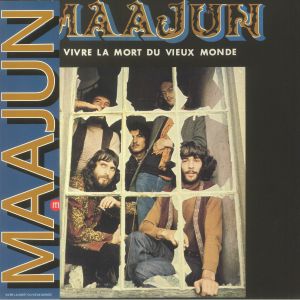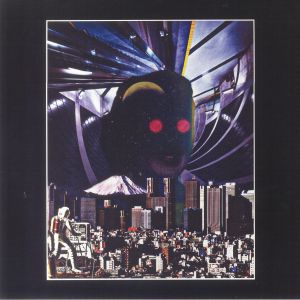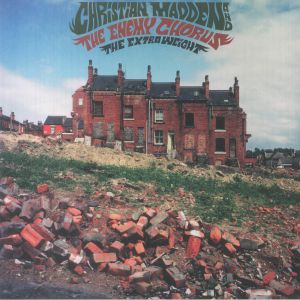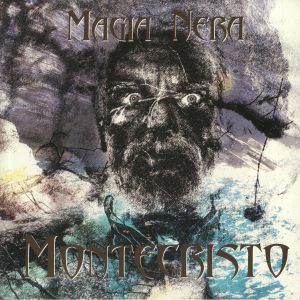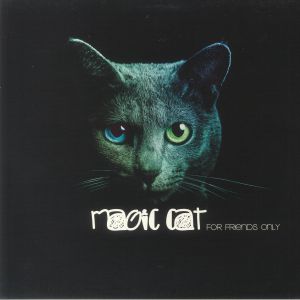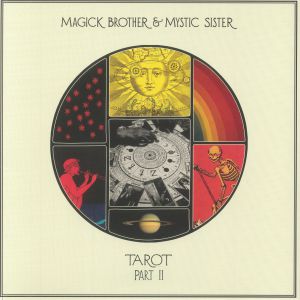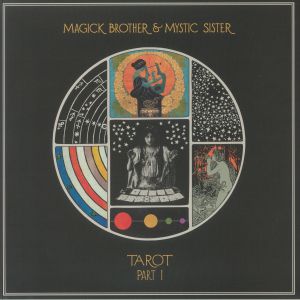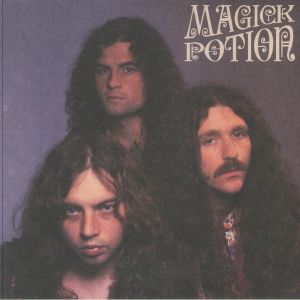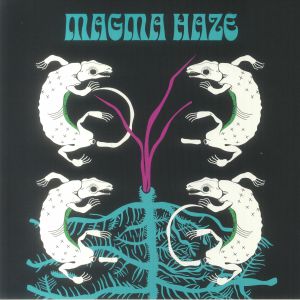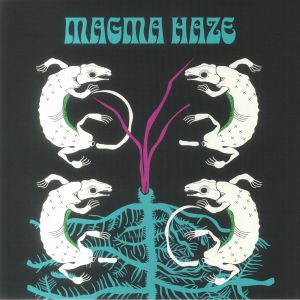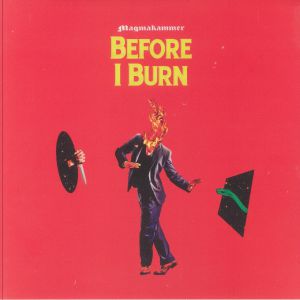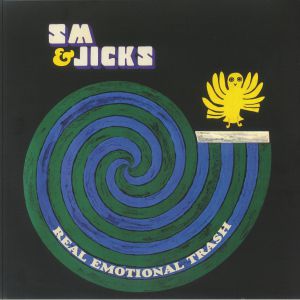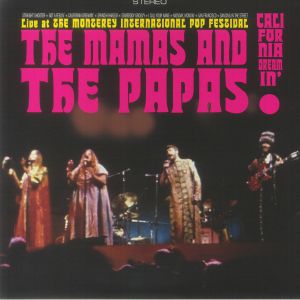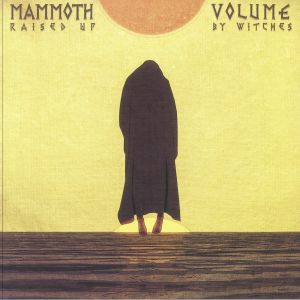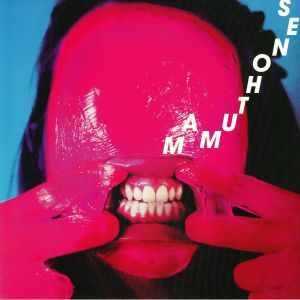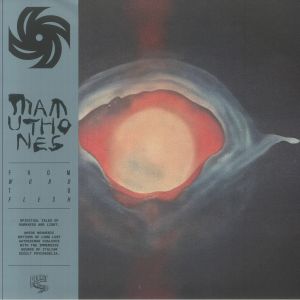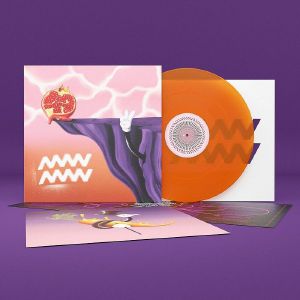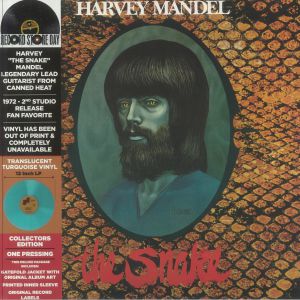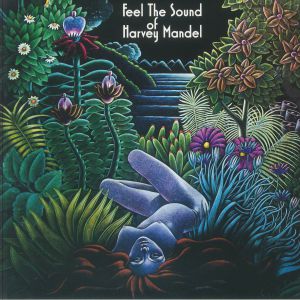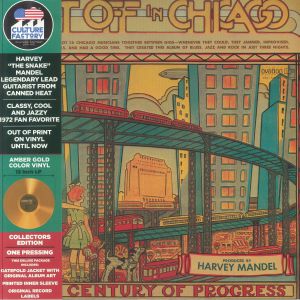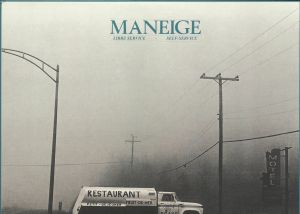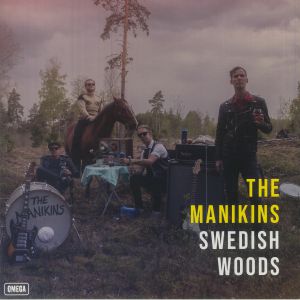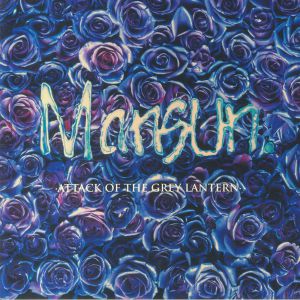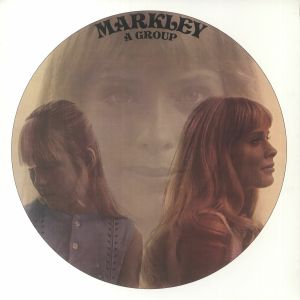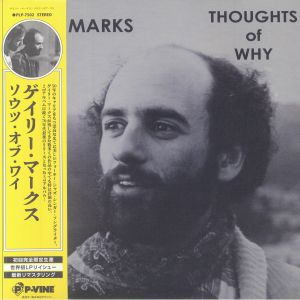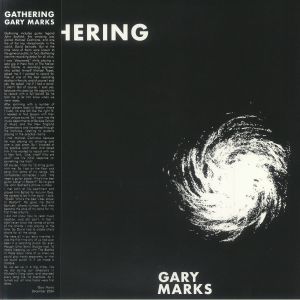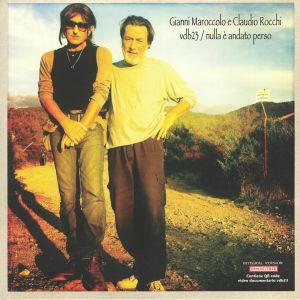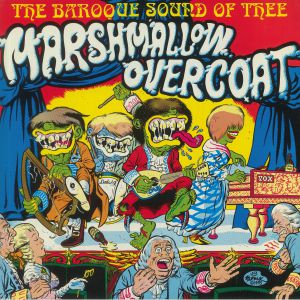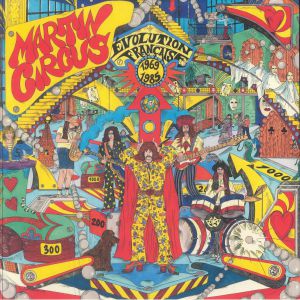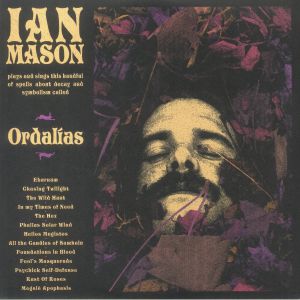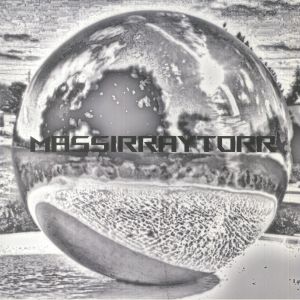Filter
Stock
Type
Music
Format
Release Date
209
Not Forthcoming
1
Today
6
Last Week
10
Last 2 Weeks
18
Last Month
30
Last 2 Months
55
Last 6 Months
98
Last Year
Artist
Label
Featured
Release Title
Price
Tags
Back catalogue: Psych/Garage Rock
Juno's full catalogue of Psych/Garage Rock
Álbumes
4321 Morte (Soundtrack) (reissue) (Record Store Day RSD 2025) (limited clear red vinyl LP + insert)
Cat: VMLP 266. Rel: 19 Apr 25
in stock $32.42
La Grande Accumulation (LP + MP3 download code)
Cat: PINGIPUNG 086. Rel: 08 Nov 24
in stock $38.23
The Instant Garden ("rose" white vinyl LP)
Cat: LNFG 148. Rel: 10 Apr 25
Review: Dr. Robert of British 80s pop hitmakers The Blow Monkeys and British folk icon Matt Deighton (Mother Earth, Bill Fay, Paul Weller) have formed a new duo and release their album on the not-for-profit Last Night From Glasgow label. Their respective histories - writing really accomplished pop songs and performing in bands with some of the best artists in the history of rock n' roll - raise expectations, but they absolutely smash them. The title-track is a beautiful marriage of pastoral psych folk and glam rock, where there's melodies to spare and affecting, deeply soulful timbres at every turn.
… Read more in stock $25.77
The Instant Garden (green marbled vinyl LP (indie exclusive))
Cat: LNFG 148G. Rel: 10 Apr 25
Review: If you're unfamiliar with Dr Robert, we recommend checking out The Blow Monkeys. Robert Howard, as he's credited, formed the iconic new wave and 'sophisti-pop' group in 1981 and his piano keys, bass notes, guitar melodies, vocals and words define the band's sizeable back catalogue. Matt Deighton, meanwhile, might mean Mother Earth, Bill Fay, or Paul Weller to some listeners. He's been involved with them all. Here, the esteemed UK musicians run into one another on Last Night From Glasgow, a treasure of a patron-funded, not-for-profit label out of Scotland's biggest city. It couldn't be a more credible and thoughtful combination. Musically, the result packs crazy levels of musicality, taking a lead from pop, soft, folk and psyche rock to produce a sound which moves between soaring to understated grandeur to deceptively complex and overtly intimate.
… Read more in stock $24.93
Shackamaxon Concert (LP + MP3 download code)
Cat: VFH 159. Rel: 12 Feb 24
in stock $24.93
Direct To Disc Sessions (gatefold 2xLP)
Cat: ND 013. Rel: 10 Aug 23
Review: The latest addition to Night Dreamer's series, Direct To Disk Sessions, sees Turkish downtempo specialist, Islandman, iconic percussionist and Don Cherry collaborator, Okay Temiz and contemporary saz player Muhlis Berbero?lu joining forces for the very first time. Recorded in just one take, the session captures a one-off melding of the trio's distinct styles. Islandman's signature balearic sound gives new force to Temiz's fiery percussion, reframing Berbero?lu's Anadolu folk influences into a distinctly dance-ready sound. Stand out track 'Fidayda' eases us into the trio's expertly improvised soundworld with an alluring, oscillating saz riff. When Temiz's percussion enters the mix, it arrives with a controlled unpredictability capable of leaving listeners in a trance. While Islandman's production subtly centres the piece, mapping out a pathway from which the organic instrumentation can unfurl. Future-folktronica at its very best
… Read more in stock $31.58
Vol 2 (South Korean Edition) (limited numbered 180 gram vinyl LP + booklet)
Cat: STKJ 0019. Rel: 22 Feb 23
in stock $47.54
Sketches Of Brunswick East [Migraine Edition] (limited "migraine" yellow & black ice cloudy vinyl LP)
Cat: ATRD 1665711. Rel: 15 Nov 24
in stock $25.48
Vivre La Mort Du Vieux Monde (LP + booklet with obi-strip)
Cat: FFL 077. Rel: 21 Dec 22
in stock $21.60
Indoctrination Sounds (limited LP + MP3 download code)
Cat: REPOSELP 115. Rel: 23 Feb 23
in stock $22.99
Have You Heard The News? (translucent blue vinyl LP + insert)
Cat: BPR 040SB. Rel: 20 Jun 24
in stock $26.04
The Extra Weight (translucent green vinyl LP)
Cat: FR 007LP. Rel: 15 Sep 23
in stock $24.93
in stock $23.26
in stock $28.80
Open The Morning Window, The Sunshine Comes In, The Hope Of Today Is Small Bird Singing (Dog Side) (3:04)
Review: Makoto Kurita aka. Magical Power Mako was a veteran underground avant-garde rock musician from Japan. His self-titled record, now reissued here - it saliently forewent any unique album cover save for the stock Polydor sleeve - raised all kinds of arcane hell, and went on to furtively pave the way for a yet more exploratory avant-garde renaissance in Japan thereon. Beginning with a faux-newscast about the collapse of the social contract amid gridlocked international politics (Kurita waxes British-accented with his introduction, "throughout the city today, there is chaos... hospitals have no ambulances, fire brigades have no fire engines... the country is paralysed"), as China, Russia and America escalate mutually assured tensions to a bitter triangular chess game. A deeply puzzling concept record ensues, fusing songwriterly charm, balladry and psychic rock, of purposeful provocation, and with no obvious resolution in earshot.
… Read more in stock $38.78
Tarot Part II (limited gatefold blue & black galaxy vinyl LP)
Cat: SER 120S1BB. Rel: 30 Dec 24
Review: The Magick Brother & Mystic Sister are in fact not a brother-sister duo, but rather a quartet made up of musicians Eva Muntada, Marc Tena, Maya Fernandez and Xavi Sandoval. Active since 2020 and their debut self-titled EP, this light occultic outfit have since built a rep for weaving flying-carpeted tapestries of narration, sonic reverie, and mysticism in album form; their latest record Tarot II is no exception this rule, coming as the second to name itself after the card-reading divination practice common to the Western esoteric world and beyond. Out from an opening, what sounds to be hammered dulcimered prog progression ('Strength') and moving through to a further ten tracks each named after tarot cards (save for the 'Unnamed Arcane', an apocryphal confabulation of the band - have they drawn a hand we haven't?), this is a record of supreme mystique, and one for the witches and warlocks in our ranks.
… Read more in stock $47.65
Tarot: Part 1 (limited gatefold translucent red vinyl LP)
Cat: SER 100C. Rel: 04 Apr 24
Review: Magick Brother & Mystic Sister took inspiration for their name from a serial Gong album, and sure enough this Barcelona-based four-piece know exactly where they're aiming with their heavily psychedelic, tripped-out strain of cosmic rock. Following on from their self-titled debut, now the band are back with the first instalment of a two-part album release called Tarot - so far, so mystic. The groove on 'The Hierophant' is a great place to start in diving into the intoxicating headspace of the band, where some outernational instrumentation collides with the propulsive krautrock-informed rhythm section and the Canterbury scene's affinity for funk. It's a visceral trip no self-respecting pscyhonaut should be without.
… Read more in stock $39.34
in stock $34.35
in stock $31.30
Magma Haze (sea blue vinyl LP limited to 100 copies)
Cat: SERC 111. Rel: 17 Mar 23
in stock $36.85
Before I Burn (limited gatefold translucent yellow & red splattered vinyl LP)
Cat: ARTIFAC 177. Rel: 03 Oct 24
in stock $36.29
Sun Dog (limited 180 gram black & milky white swirl vinyl LP)
Cat: SCS 001. Rel: 02 May 24
in stock $26.58
in stock $24.93
Real Emotional Trash (gatefold 180 gram vinyl 2xLP (side 4 etched) + MP3 download code)
Cat: WIGLP 215. Rel: 27 Jun 24
in stock $29.91
It's A Bubble Gum World (reissue) (limited white vinyl LP)
Cat: LPBEAT 172LE. Rel: 28 Jan 22
in stock $21.22
Preserve Wildlife (remastered) (gatefold LP + insert + MP3 download code in die-cut sleeve)
Cat: OSR 103. Rel: 11 Dec 24
in stock $28.54
California Dreamin: Live At The Monterey International Pop Festival (Record Store Day RSD Black Friday 2023) (gold vinyl LP)
Cat: 197189 06930. Rel: 01 Dec 23
in stock $27.98
Raised Up By Witches (limited bue & orange galaxy haze vinyl LP + MP3 download code)
Cat: BFR 035LP. Rel: 04 Sep 24
in stock $26.32
Fear On The Corner (coloured vinyl LP + MP3 download code)
Cat: LAUNCH 122. Rel: 23 Feb 18
in stock $22.15
From Word To Flesh (limited hand-numbered LP + MP3 download code with obi-strip (indie exclusive))
Cat: LAUNCH 388. Rel: 17 Apr 25
in stock $23.26
Carrot On Strings (limited translucent orange vinyl LP + insert)
Cat: SP 1550X. Rel: 06 Jun 24
in stock $24.11
The Snake (Record Store Day RSD 2025) (gatefold translucent turquoise vinyl LP with obi-strip)
Cat: 819514 012801. Rel: 19 Apr 25
in stock $31.02
Feel The Sound (reissue) (Record Store Day Black Friday RSD 2024) ('sunburst' blue in purple vinyl LP)
Cat: 741869 396919. Rel: 02 Dec 24
in stock $32.42
Get Off In Chicago (reissue) (limited gatefold translucent gold vinyl LP with obi-strip)
Cat: CULF 12711. Rel: 10 Feb 25
in stock $29.10
in stock $26.58
Swedish Woods (limited orange vinyl LP + insert)
Cat: LPLOVELY 70. Rel: 04 Jan 24
in stock $23.55
in stock $24.38
in stock $24.11
Carpet Of Fallen Leaves (limited gatefold 180 gram vinyl 2xLP + booklet)
Cat: MM 201LP. Rel: 07 May 25
Review: Carpet of Fallen Leaves serves as the luminous introduction to Eddie Marcon, a folk-pop project from Eddie Corman and Jules Marcon. The collection takes in more than two decades of intimate, self-released recordings that all bring fragile beauty and melodic grace from Japan's underground psych-folk scene. Gentle guitar, soft organ and deft bass interlace with pristine vibraphone, flute and pedal steel sounds to form sparse and spare yet intricate arrangements. Collaborators like Ikuro Takahashi and Shintaro Sakamoto add their own contributions, and so songs shimmer with a real emotional depth and Eastern charm. Highlights like 'Tora To Lion' and 'Shoujo' inspire quiet wonder while capturing fleeting moments of everyday life with a real tenderness and elegance.
… Read more in stock $39.61
in stock $27.43
in stock $20.20
Thoughts Of Why (reissue) (LP + insert with obi-strip)
Cat: PLP 7502. Rel: 10 Feb 25
Review: If you were indeed wondering why, well, Gary Marks doesn't claim to have the answers. Amid an honorary reissue campaign of this under-storied musician's early LPs by P-Vine (after he moved on to become a published fiction and non-fiction writer), Marks' third record from 1978 stands out among this folky jazz singer's best. After his debut record Gathering and then the sophomore Upon Aonda's Wing, this ponderous yet sprightly record follows Marks' relocation to the West Coast of the USA in 1976, after which he began working with Art Rande and Oregon member Paul McCandles. Considered his masterpiece by many, this hidden avant-garde folk jazz diamond contains stirring narratives, cathartic piano ballads, and hum-along heart-pinchers, weaving twin threads of personal disclosure and mystery Americana.
… Read more in stock $36.01
Gathering (reissue) (limited LP with obi-strip)
Cat: LANRH 006. Rel: 12 Feb 25
Review: The exquisite 1974 debut album by American pianist, guitarist, producer and songwriter Gary Marks hears a deserving reissue through Lantern Heights. Now a published fiction and non-fiction author, Marks' early musical career ended all to shortly, and was Marked sonically by sweetened contemporary jazz and folk arrangements, heard best on this homeward but still subtly cosmic opening statement of an LP. The open-ended, pathetic-fallacious 'Sherry's Song' is our twinging piece de resistance, with Marks serenading a young flame as the object of his gushing folksy affections, while the immediate follower 'Gathering' indulges a completely "other" set of progged-out emotions. 'We Free' unites the two through a bossa nova downturn, and 'A Gina Theme' isolates the vibraphone in a kind of giant sonic glasshouse, serving as one of several interludes that steadfastly beautify the record.
… Read more in stock $30.76
Vdb23/Nulla E Andato Perso (Record Store Day 2020) (limited numbered gatefold 180 gram vinyl 2xLP)
Cat: 128554 2871. Rel: 03 Nov 20
in stock $37.13
Cat: MISTY 21. Rel: 29 Sep 21
in stock $27.70
Pourquoi Tu M'laches Pas?
Review: Known as much for their outlandish costumes as their constant musical evolution, Martin Circus were one of France's most intriguing bands of the 1970s and 80s. Originally formed in 1969 as a psychedelics-inspired progressive rock combo, they later successfully turned their hand to wonderfully camp, over-the-top disco and synth-sporting new wave. Evolution Francaise 1969-1985 does a brilliant job of charting that remarkable musical evolution, dashing between tail end of the 60s prog sounds ('Tout Tremblant De Fievre', 'Facon de Parler'), early Black Sabbath-esque heavy rock ('Annie, Christine ou Partricia'), gritty, Rolling Stones style rhythm and blues ('A Bas Tous Le Privileges'), psychedelic disco-rock ('Les Indiens Du Demier Matin'), Cerrone-ish throb-jobs ('Mon Premier Hold Up', Francois K re-editing 'Disco Circus') and synth-pop ('J'tai Vu Dans Le Canoe?').
… Read more in stock $26.58
Esoteric Hex (limited transparent orange vinyl LP)
Cat: LPPNKSLM 096LEIEC. Rel: 09 Jun 22
in stock $25.05
The Galloping Cat (pink vinyl LP limited to 250 copies + MP3 download code)
Cat: UIHR 024. Rel: 28 May 24
in stock $27.15
in stock $40.73
in stock $40.17

 USD
USD





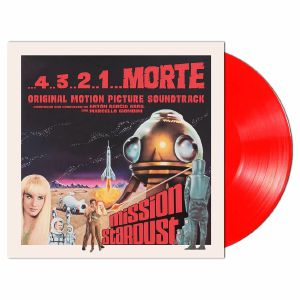
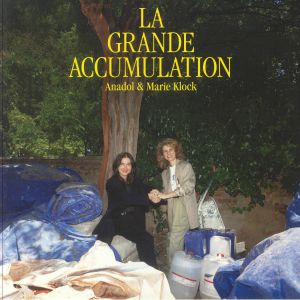
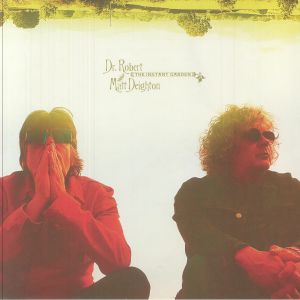
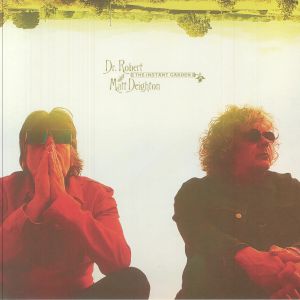
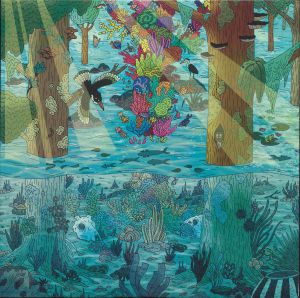
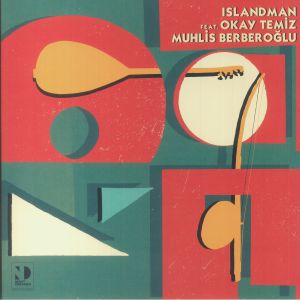
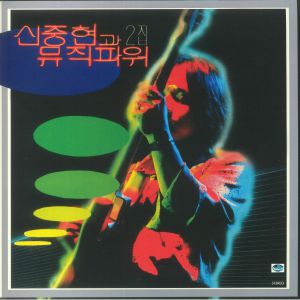
![Sketches Of Brunswick East [Migraine Edition]](https://imagescdn.juno.co.uk/300/CS1053612-01A-MED.jpg)
